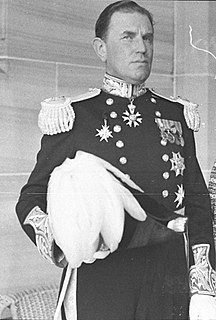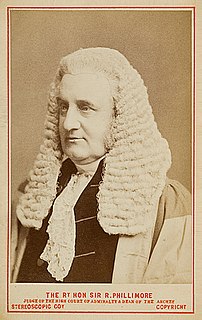Notes
This article needs additional citations for verification .(January 2021) |
- ↑ "No. 37658". The London Gazette . 19 July 1946. p. 3736.
Baron Citrine, of Wembley in the County of Middlesex, was a title in the Peerage of the United Kingdom. It was created in 1946 for the prominent trade unionist Sir Walter Citrine. [1] He was General Secretary of the TUC from 1925 to 1946. The title became extinct on the death of his younger son, the third Baron (who had succeeded his elder brother in 1997), in 2006.
This article needs additional citations for verification .(January 2021) |

Viscount Runciman of Doxford, of Doxford in the County of Northumberland, is a title in the Peerage of the United Kingdom. It was created in 1937 for the Hon. Walter Runciman, a politician whose career included service as a Member of Parliament, President of the Board of Trade and Lord President of the Council. He was the son and heir apparent of the shipping magnate and Liberal politician Walter Runciman, who had been created a Baronet in the Baronetage of the United Kingdom in 1906 and Baron Runciman, of Shoreston in the County of Northumberland, in 1933, also in the Peerage of the United Kingdom. As his father was still alive at the time of the creation of the viscountcy the title of this peerage was Runciman of Doxford rather than simply Runciman. As of 2020 the titles are held by the first Viscount's great-grandson, the fourth Viscount, who succeeded his father in 2020. He is a well-known political scientist at the University of Cambridge.

Baron Bagot, of Bagot's Bromley in the County of Stafford, is a title in the Peerage of Great Britain. It was created on 12 October 1780 for Sir William Bagot, 6th Baronet.
Baron Hayter, of Chislehurst in the County of Kent, is a title in the Peerage of the United Kingdom. It was created in 1927 for the businessman Sir George Chubb, 1st Baronet. He had already been created a baronet of Newlands in the Baronetage of the United Kingdom in 1900. Chubb was chairman and managing director of the firm Chubb and Sons Lock and Safe Co Ltd, established by his grandfather Charles Chubb in the early 19th century. "Hayter" was the maiden name of George Hayter Chubb's mother, and was selected in preference to "Chubb", as it was not considered appropriate for names of corporations to be attributed to members of the House of Lords. He was succeeded by his son, the second baron. He was managing director of Chubb and Sons Lock and Safe Co Ltd. His son, the third baron, was managing director and chairman of Chubb and Sons Lock and Safe Co Ltd and also served as deputy chairman of the House of Lords from 1981 to 1995. As of 2014 the titles are held by the latter's son, the fourth baron, who succeeded in 2003.
Baron Hives, of Duffield in the County of Derby, is a title in the Peerage of the United Kingdom. It was created 7 July 1950 for the Ernest Hives, Chairman of Rolls-Royce Ltd. As of 2010 the title is held by his grandson, the third Baron, who succeeded his uncle in 1997.
Baron Gridley, of Stockport in the County Palatine of Chester, is a title in the Peerage of the United Kingdom. It was created on 10 January 1955 for the Conservative politician Sir Arnold Gridley, who had earlier represented Stockport and Stockport South in the House of Commons. As of 2010 the title is held by his grandson, the third Baron, who succeeded his father in 1996.

Baron Grimston of Westbury, of Westbury in the County of Wiltshire, is a title in the Peerage of the United Kingdom. It was created in 1964 for the Conservative politician and former Deputy Speaker of the House of Commons, Sir Robert Grimston, 1st Baronet. He had already been created a baronet in 1952. Grimston was the son of Reverend Canon the Hon. Robert Grimston, third son of James Grimston, 2nd Earl of Verulam. As of 2017 the titles are held by his grandson, the third Baron, who succeeded his father in 2003.

Baron Astor of Hever, of Hever Castle in the County of Kent, is a title in the Peerage of the United Kingdom. It was created in 1956 for John Jacob Astor, a prominent newspaper proprietor and Conservative politician. He was the fourth child of William Waldorf Astor, 1st Viscount Astor. Lord Astor of Hever was succeeded by his eldest son, the second Baron. He served as Lord Lieutenant of Kent between 1972 and 1982.

Baron Wakehurst, of Ardingly in the County of Sussex, is a title in the Peerage of the United Kingdom. It was created on 29 June 1934 for the Conservative politician Gerald Loder, fifth son of Sir Robert Loder, 1st Baronet. He had previously represented Brighton in the House of Commons and was the creator of Wakehurst Place Gardens in Ardingly, West Sussex. His only son, the second Baron, was also a Conservative politician and served as Governor of New South Wales and later as Governor of Northern Ireland. The third baron, who was known by his middle name Christopher, was a barrister and businessman: he died in July 2022. As of 2022 the title is held by the latter's son Timothy, the fourth Baron, who succeeded his father in that year.

Baron Newall, of Clifton-upon-Dunsmoor in the County of Warwick, is a title in the Peerage of the United Kingdom. It was created on 18 July 1946 for Marshal of the Royal Air Force Sir Cyril Newall. He was Chief of the Air Staff between 1937 and 1940 and Governor-General of New Zealand between 1941 and 1946. As of 2017 the title is held by his only son, the second Baron, who succeeded in 1963.
Baron Shepherd, of Spalding in the County of Lincoln, is a title in the Peerage of the United Kingdom. It was created in 1946 for George Shepherd, who had previously served as National Agent of the Labour Party. His only son, Malcolm Newton Shepherd, 2nd Baron Shepherd the second Baron, was also a prominent Labour politician and notably served as Leader of the House of Lords. After the House of Lords Act 1999 removed the automatic right of hereditary peers to sit in the House of Lords he was given a life peerage as Baron Shepherd of Spalding, of Spalding in the County of Lincolnshire. This enabled him to remain an active member of the House of Lords On his death in 2001 the life barony became extinct, while he was succeeded in the hereditary barony by his eldest son, Graeme, the third and present holder of the title.

Baron Phillimore, of Shiplake in the County of Oxford, is a title in the Peerage of the United Kingdom. It was created in 1918 for the former Judge of the High Court of Justice and Lord Justice of Appeal, Sir Walter Phillimore, 2nd Baronet. The Phillimore Baronetcy, of The Coppice, had been created in the Baronetage of the United Kingdom on 28 December 1881 for his father Sir Robert Phillimore, who was also a noted lawyer and judge. The first Baron was succeeded by his son, the second Baron.

Baron Brain, of Eynsham in the County of Oxford, is a title in the Peerage of the United Kingdom. It was created on 26 January 1962 for the physician and neurologist Sir Russell Brain, 1st Baronet. He had already been created a Baronet, of Reading in the County of Berkshire, on 29 June 1954. As of 2014 the titles are held by his youngest son, the third Baron, who succeeded in that year. He is a retired physician and a former Professor of Medicine at McMaster University, Canada.

Baron Tedder, of Glenguin in the County of Stirling, is a title in the Peerage of the United Kingdom. It was created in 1946 for Marshal of the Royal Air Force, Sir Arthur Tedder. His second son, the second Baron, was Purdie Professor of Chemistry at the University of St Andrews. As of 2010 the title is held by the latter's son, the third Baron, who succeeded in 1994.
Baron Darwen, of Heys-in-Bowland in the West Riding of the County of York, is a title in the Peerage of the United Kingdom. It was created on 12 February 1946 for John Davies, a prominent cotton manufacturer. He served as a Lord-in-waiting from 1949 to 1950 in the Labour administration of Clement Attlee. As of 2011 the title is held by his great-grandson, the fourth Baron, who succeeded his father in 2011.
Baron Crawshaw, of Crawshaw in the County Palatine of Lancaster and of Whatton in the County of Leicester is a title in the Peerage of the United Kingdom. It was created on 25 August 1892 for Sir Thomas Brooks, 1st Baronet. He notably served as High Sheriff of Lancashire in 1884. Brooks had already been created a baronet in the Baronetage of the United Kingdom, of Crawshaw Hall and Whatton House, on 9 February 1891. As of 2013 the titles are held by his great-grandson, the fifth Baron, who succeeded his elder brother in 1997.
Baron Cunliffe, of Headley in the County of Surrey, is a title in the Peerage of the United Kingdom. It was created in 1914 for Walter Cunliffe, Governor of the Bank of England from 1913 to 1918. As of 2010 the title is held by his grandson, the third Baron, who succeeded his father in 1963.
Baron Chorley, of Kendal in the County of Westmorland, is a title in the Peerage of the United Kingdom. It was created on 16 November 1945 for the barrister, academic and Labour politician, Robert Chorley. He was Sir Ernest Cassel Professor of Commercial and Industrial Law at the University of London from 1930 to 1946 and served as a Lord-in-waiting from 1946 to 1950 in the Labour administration of Clement Attlee. The second Baron, who succeeded his father in 1978, was one of the ninety elected hereditary peers elected remain in the House of Lords after the passing of the House of Lords Act of 1999, where he sat as a cross-bencher. As of 2016 the title is held by his son.
Baron Calverley, of the City of Bradford in the West Riding of the County of York, is a title in the Peerage of the United Kingdom. It was created in 1945 for the Labour politician George Muff. He had previously represented Kingston upon Hull East in the House of Commons. As of 2010 the title is held by his grandson, the third Baron, who succeeded his father in 1971.
Baron Layton, of Danehill in the County of Sussex, is a title in the Peerage of the United Kingdom. It was created in 1947 for Sir Walter Layton, a prominent economist, editor and newspaper proprietor. He was editor of The Economist from 1922 to 1938. As of 2019 the title is held by his grandson, the fourth Baron—son of the first Baron's younger son David Layton—who succeeded in 2018.
Baron Greenway, of Stanbridge Earls in the County of Southampton, is a title in the Peerage of the United Kingdom. It was created in 1927 for Sir Charles Greenway, 1st Baronet, one of the founders of the Anglo-Persian Oil Company. He had already been created a Baronet, of Stanbridge Earls in the County of Southampton, in 1919. As of 2017 the titles are held by his great-grandson, the fourth Baron, who succeeded his father in 1975. Lord Greenway is one of the ninety elected hereditary peers that remain in the House of Lords after the passing of the House of Lords Act 1999, and sits as a cross-bencher.